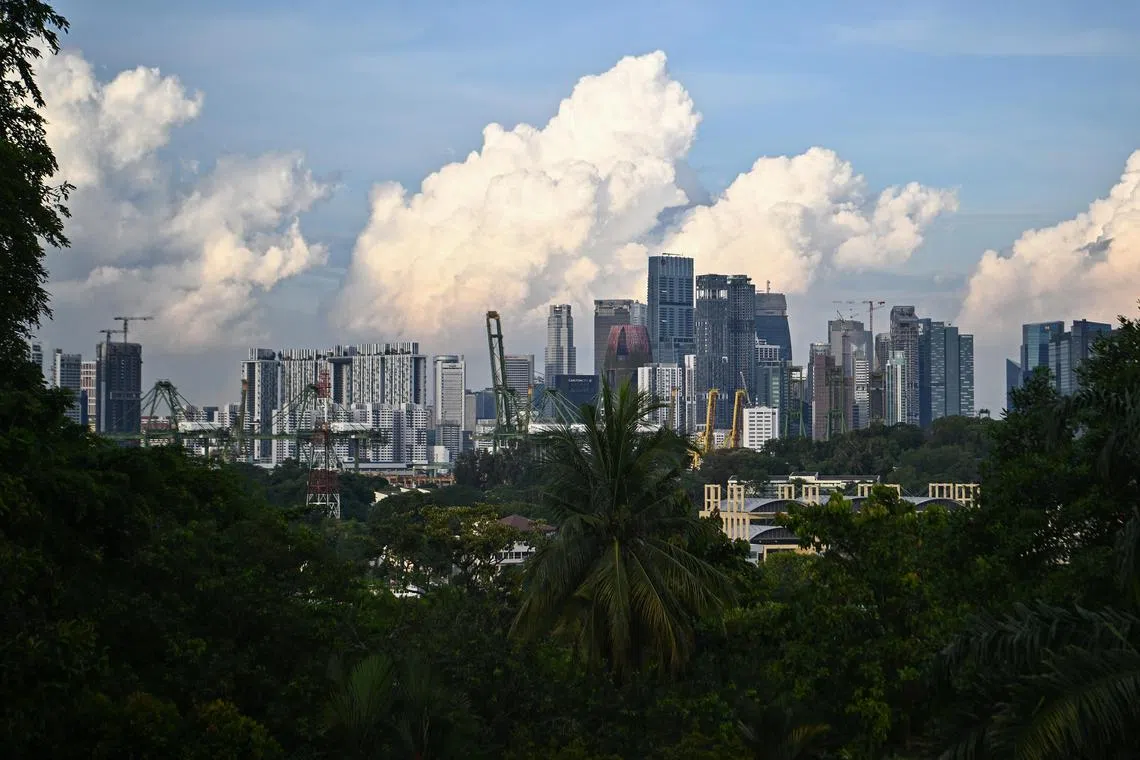More help for companies to assess climate-related risks and understand green finance
Sign up now: Get ST's newsletters delivered to your inbox

The assistance for companies comes in the form of two publications from the Institute of Singapore Chartered Accountants.
ST PHOTO: LIM YAOHUI
SINGAPORE – Help is at hand for companies struggling to assess the impact of climate change on their business and the even more daunting challenge of securing funding for sustainable projects.
The assistance comes in the form of two publications from the national accountancy body, the Institute of Singapore Chartered Accountants (ISCA).
One guide helps firms examine how climate change might impact their business and identify ways to make their operations more resilient, while the other outlines various frameworks in the area of green finance and highlights relevant government grants and schemes.
The institute urges companies to get started on scenario analysis. This includes pilot testing and considering at least two scenarios – for example, where global warming is limited to 1.5 deg C above pre-industrial levels, and if it rises to 4 deg C.
The guide for this area also sets out common climate risks, which in Singapore include increased compliance costs due to changes in regulations and surging raw material prices.
There are also policy, legal and reputational risks to consider.
Dr Lee Hui Mien, Singtel’s senior director for group environmental sustainability, said companies can start small by analysing a certain risk and working out a plan around it.
“Once you get a bit more knowledgeable and understand the issue, then you’ll be able to also know what kind of external help you need,” she said on Wednesday at a fireside chat, part of an ISCA conference where the new guides were launched.
The conference was held at the ISCA House in Cecil Street, and it was live-streamed.
Fellow speaker Foo Peng Er, vice-president of group sustainability at CapitaLand Investment, said companies should not carry out scenario analysis simply for their business disclosures, but instead use it to embed sustainability in their business.
“The teams you should be working with are not just the sustainability team and accountants,” she said. “At our company, it will also be the investor relations, investment, portfolio, asset management and operations teams... You’re rehearsing for the future and you’re rehearsing together.”
The other guide published on Wednesday concerns green and sustainable finance pointers for small and medium-sized enterprises (SMEs), while also examining the role of accountants in leading a company’s green agenda..
As ISCA noted: “With more than 90 per cent of businesses in Singapore being SMEs, they are crucial to the nation’s transition to a low-carbon economy.
“However, many SMEs are not aware of the range of sustainable finance options available to them, or do not fully understand the requirements and benefits of such finance.”
Mainboard-listed Dyna-Mac Holdings, which fabricates topside modules and structures for the offshore oil and gas industry, was among the local companies highlighted in the guide for its sustainability efforts.
In 2020, the firm set targets to reduce its carbon emission intensity – a measure of emissions per unit of activity – by 25 per cent in five years.
It switched the fluorescent lights on its premises to LED, and moved from diesel to electrical power. The company reaped lower interest rates when targets were met under a sustainability-linked loan from OCBC Bank.
Ms Iris Ng, OCBC’s business head of middle market for global commercial banking, said companies tend to think it is difficult to get sustainable financing unless they have certain certifications or already have some form of government support.
But there are various schemes they can tap, she said at another fireside chat at the ISCA event.
These include her bank’s SME Sustainable Finance Framework that helps to simplify access to green loans, and the National Environment Agency’s Energy Efficiency Fund that was enhanced this year to allow firms to defray 70 per cent of qualifying costs when they adopt certain energy-efficient technologies.
Dyna-Mac executive chairman and chief executive Lim Ah Cheng told the event that his company started its sustainability efforts as it needed to reduce costs to get through the Covid-19 pandemic.
“But having said that, these steps were very basic. We recognised that we needed to future-proof our business,” he said, adding that Dyna-Mac’s clients were also facing more pressure from banks to have a sustainability plan. This meant that Dyna-Mac, as part of their supply chain, also needed to step up.
“If you’re not able to participate in the project, you’re not in the game. It’s a question of immediate survival.”



